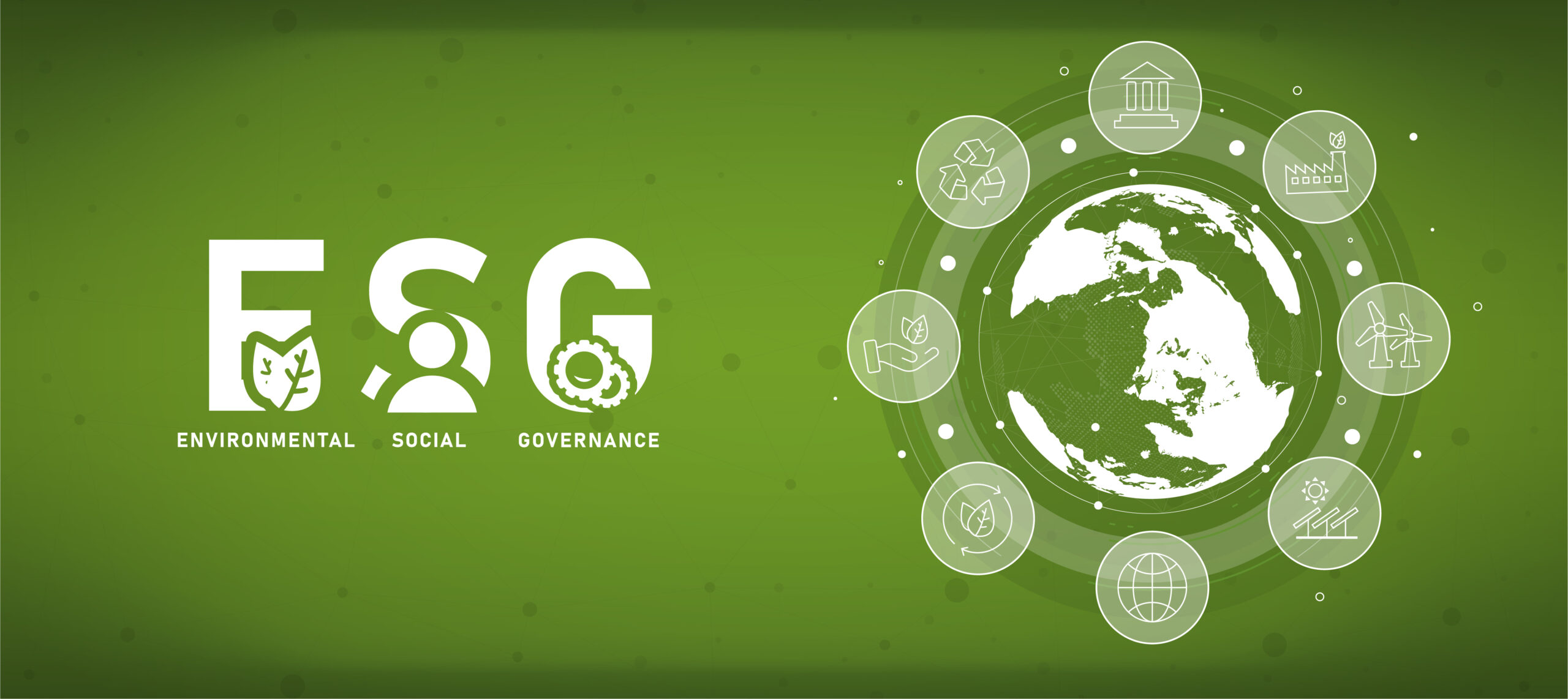

In today’s fast-paced and ever-evolving business landscape, sustainability and responsible business practices have become paramount. With increasing focus on sustainability and Corporate Social Responsibility, BRSR reporting provides a framework for companies to transparently communicate their environmental, social, and governance (ESG) performance. In the current scenario, companies are increasingly demanding to demonstrate their commitment to sustainability, making BRSR reporting a valuable tool for showcasing responsible business practices.
SEBI vide its amendment notification dated 14th June 2023 read with SEBI circular dated 12th July 2023 required the top 1000 listed entities from the FY 2023-24 to make disclosures as per the updated Business Responsibility & Sustainability Reporting [BRSR] as part of their Annual Reports. Pursuant to the ESG Advisory Committee recommendations and public comments, the Board further decided to introduce disclosures and assurance for the value chain of listed entities, as per the BRSR Core. The top 150 listed entities identified on the basis of market capitalization are required to mandatorily undertake reasonable assurance of the BRSR Core from FY 23-24. Further, ESG disclosures for the value chain shall be applicable to the top 250 listed entities (by market capitalization), on a comply-or-explain basis from FY 2024-25. The limited assurance of the above shall be applicable on a comply-or-explain basis from FY 2025-26.
The transfer of ESG responsibilities, including reporting and regulatory compliance, to value chain suppliers represents a significant transition. However, it’s crucial to recognize that this shift can present a substantial challenge for these suppliers, who may perceive it as a formidable undertaking. These challenges can vary depending on factors such as the Company’s size, Industry, and Geographical scope. Below mentioned are some common hurdles:
- Acquiring data from foreign companies and vendors: For multinational companies, gathering data from foreign companies and vendors can be daunting. Challenges may arise due to differences in accounting years between countries, local legal requirements, and data privacy policies. Foreign entities may also perceive the reporting process as an unnecessary obligation imposed by local laws.
- Identification of 75% of the value chain partners: Within the framework of BRSR Core, disclosure pertaining to the value chain holds paramount importance. Specifically, BRSR Core necessitates the inclusion of the most significant upstream and downstream partners of a listed entity within this disclosure. These partners should collectively constitute 75% of the entity’s purchases and sales, measured by their respective values. However, a formidable challenge that companies encounter in the process of making this disclosure lies in the identification of these vital value chain partners. The sooner a Company can identify and engage with these partners that meet the 75% criteria, the smoother their compliance journey becomes. Timely identification streamlines the process and enhances the Company’s ability to meet BRSR Core reporting requirements effectively.
- Compiling the vast value chain data: Once the identification of value chain partners constituting 75% of the entity’s purchases and sales, measured by their respective values, is accomplished, a subsequent challenge emerges—the compilation of this extensive dataset. For numerous corporations, their value chain ecosystem can encompass a multitude of partners, often with intricate layers of sub-partners. Managing and aggregating data from this expansive network can be an exceptionally time-consuming endeavour. This criterion can be challenging for companies with extensive value chains that involve numerous partners. Collecting data from a vast number of value chain partners can be resource-intensive and complex.
- Acquiring data from small value chain suppliers and vendors: Small value chain partners may lack the awareness and resources to participate effectively in BRSR Core reporting. Acquiring data from small value chain partners such as MSMEs, SMEs and sole proprietors may pose multiple obstacles to the Company such as:
- Availability of data: Small businesses often lack the resources or infrastructure to collect and maintain detailed data. They may not have dedicated personnel or systems in place for data tracking or recording, making it difficult to obtain the required information.
- Unwillingness to invest: Small value chain partners may be hesitant to invest in collecting and reporting sustainability data due to limited financial resources. They might view the process as costly and time-consuming, with uncertain returns on investment or be hesitant to allocate resources for extensive data provision.
- Reliability of the data: Inconsistent data collection methods, varying data quality, and limited validation processes can undermine the accuracy of the reported information.
- Convincing the value chain partners: The onus of complying with BRSR requirements and obtaining limited assurance lies squarely with the listed entity, not the value chain partners. Consequently, it becomes the responsibility of the listed entity to engage, persuade, and guide value chain partners to fulfil these compliance obligations. This can include encouraging partners to embrace the various aspects of ESG reporting, which may indeed prove to be a formidable task.
While mandatory assurance for value chain data is set to take effect in FY 25-26, it is advisable for companies to proactively conduct some sort of voluntary assurance well in advance. This proactive approach serves to bolster the reliability of data obtained from value chain partners. To address the above issues effectively, listed entities must consider implementing a regimen of periodic audits and due diligence to ensure the accuracy and reliability of data received from value chain partners. Establishing a structured framework with predefined criteria or checkboxes can prove invaluable in helping listed entities ascertain the quality and conformity of the data provided. This framework serves as an internal assurance mechanism, allowing listed entities to confidently validate the data obtained from their smaller partners and thereby enhance the credibility of their ESG reporting efforts.
Importance of ESG disclosures from Value chain partners:
BRSR Core reporting transcends the realm of mere regulatory compliance; it embodies a strategic imperative that can yield substantial advantages for organizations. It is imperative for value chain partners to perceive this reporting not merely as an obligatory checkbox but as an earnest commitment to ethical business practices, encompassing standards such as the Global Reporting Initiative (GRI) and the Sustainability Accounting Standards Board (SASB).
In the realm of value chain dynamics, a notable challenge emerges as the listed entity endeavours to persuade its value chain partners to adhere to the framework. This challenge arises because compliance primarily benefits the listed entity, fostering improvements in its own ESG score, while the value chain partners may not see direct advantages in this regard.
Moreover, ESG reporting presents value chain partners with a dual opportunity. Firstly, it can serve as a compelling marketing tool, allowing organizations to showcase their commitment to sustainability and responsible business practices to consumers and investors alike. Secondly, by becoming ESG compliant and consistently demonstrating their dedication to these principles, companies position themselves as ethical industry leaders, setting a benchmark for others to follow. By demonstrating a commitment to sustainability and responsible business practices, value chain partners can enhance their reputation and build trust among consumers, investors, and the community.
To fully embrace the essence of ESG reporting, companies must genuinely comprehend its necessity and significance. In this era marked by climate change and global sustainability goals, ESG reporting assumes a pivotal role. Companies must recognize that their engagement in ESG reporting is not solely a response to regulatory mandates but a conscientious acknowledgement of their responsibilities.
By acknowledging the urgent need to address climate change, aligning their efforts with Sustainable Development Goals (SDGs), and adhering to recognized ESG standards like GRI and SASB, companies can harness ESG reporting as a powerful tool for both mitigating risks and seizing opportunities in an increasingly complex and interconnected world.
Here are several strategic approaches that corporations can employ to tackle the previously mentioned challenges related to ESG disclosures by their value chain partners:
- Enhancing Stakeholder Engagement: Effective collaboration between the Company and its value chain partners is paramount. To move in unison towards ESG compliance, organizations should foster strong relationships and open lines of communication. This engagement should extend beyond financial transactions to include discussions about ESG goals and objectives. Shared values and a collective commitment to sustainability can pave the way for more transparent and efficient disclosures.
- Contractual Agreements and Amendments: To ensure ESG compliance throughout the value chain, companies can consider entering into contractual agreements with their partners. These agreements should outline specific ESG disclosure requirements and obligations for each party involved. In cases where existing contracts do not address ESG concerns, proactive amendments can be made to incorporate these crucial provisions. This approach not only enforces compliance but also demonstrates a mutual commitment to sustainable practices.
- Investing in Training and knowledge centres: Regular training programs can be implemented to equip value chain partners with the knowledge and tools required to provide accurate ESG disclosures. By setting clear mechanisms and parameters, companies can maintain a consistent flow of accurate ESG data, reducing the likelihood of errors or omissions.
- Establishing controls, conducting audits and due diligence: Establishing controls and conducting audits can help monitor compliance and ensure that partners meet their disclosure obligations. Through regular due diligence and audits of data provided by value chain partners, companies gain a powerful tool for assessing the performance and reliability of their existing partners. This data-driven evaluation enables companies to make informed decisions, including the potential appointment, engagement, or transactions with new value chain partners when necessary.
Conclusion:
In the realm of ESG reporting and sustainability, the integration of value chain partners presents a labyrinth of challenges and opportunities. While navigating, the intricacies of ESG disclosures may seem daunting, proactive measures such as stakeholder engagement, contractual agreements, training, and regulatory support serve as guiding stars to overcome these hurdles. In an era where environmental and social responsibility is imperative, collaboration among all stakeholders is vital in achieving ESG objectives and fostering a more sustainable future for businesses and society as a whole.

